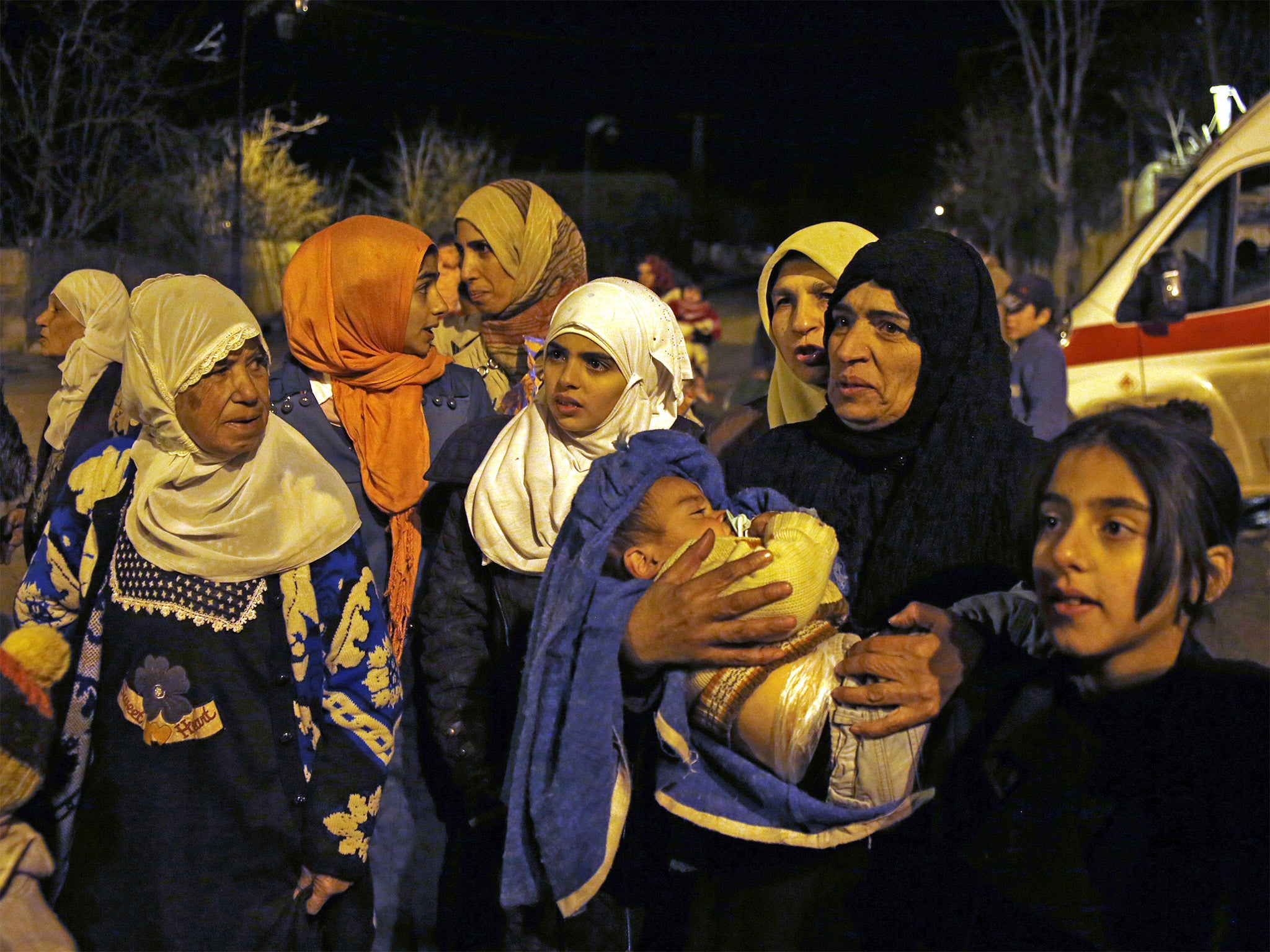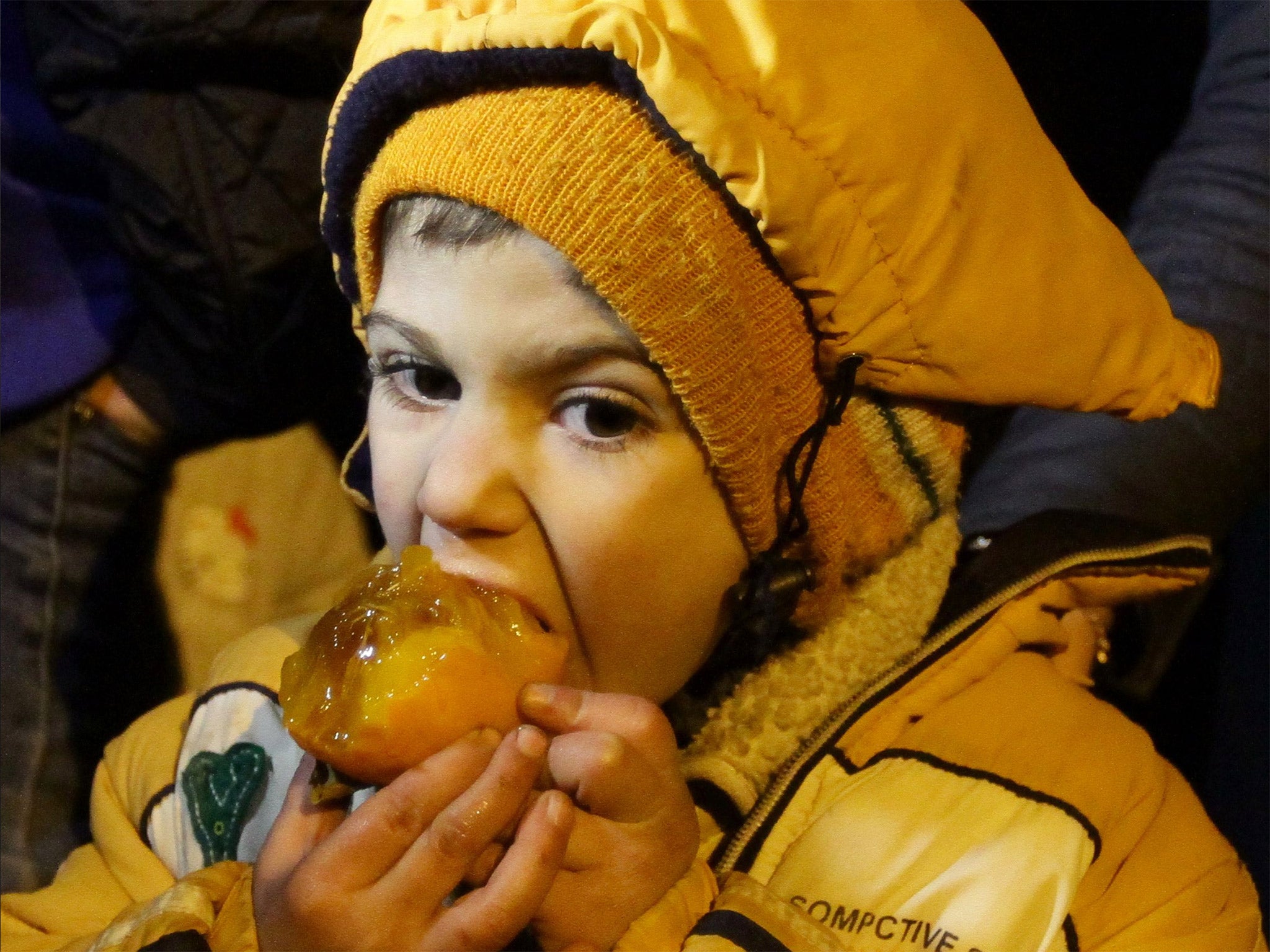Syria civil war: Aid agency chiefs raise alarm over ‘heartbreaking’ plight of besieged citizens in Madaya
American ambassador to United Nations accuses Assad regime of employing ‘grotesque starve-or-surrender tactics’

Your support helps us to tell the story
From reproductive rights to climate change to Big Tech, The Independent is on the ground when the story is developing. Whether it's investigating the financials of Elon Musk's pro-Trump PAC or producing our latest documentary, 'The A Word', which shines a light on the American women fighting for reproductive rights, we know how important it is to parse out the facts from the messaging.
At such a critical moment in US history, we need reporters on the ground. Your donation allows us to keep sending journalists to speak to both sides of the story.
The Independent is trusted by Americans across the entire political spectrum. And unlike many other quality news outlets, we choose not to lock Americans out of our reporting and analysis with paywalls. We believe quality journalism should be available to everyone, paid for by those who can afford it.
Your support makes all the difference.The World Health Organisation (WHO) has urged the Syrian government to allow further urgent medical aid to be sent to the besieged town of Madaya, after aid workers described the “heartbreaking” conditions endured by its starving residents.
Doctors said 300 to 400 people needed urgent special medical care, according to Elizabeth Hoff, the WHO representative in Damascus, who went into Madaya with the first aid convoy allowed in for months. “I am really alarmed,” she said later by telephone from Damascus.
“People gathered in the market place. You could see many were malnourished, starving. They were skinny, tired, severely distressed. There was no smile on anybody’s face. It is not what you expect to see when you arrive with a convoy. The children I talked to said they had no strength to play.”
Some 40,000 people are trapped by encircling government forces and some residents have starved to death.
“It’s really heartbreaking to see the situation of the people,” said Pawel Krzysiek of the International Committee of the Red Cross.
The WHO said it had asked the Syrian government to allow it to send mobile clinics and medical teams to Madaya to assess the extent of malnutrition and evacuate the worst cases. Ms Hoff said medical staff had told her that mothers had no milk for breast feeding and many malnourished people were too weak to leave their homes. Rice was on sale, she said, but at $200 or $300 a kilogram. “An elderly lady had not eaten for 20 days. She was picked up unconscious on the street and brought in,” she said.
The US ambassador to the United Nations, Samantha Power, accused the government of Syrian President Bashar al-Assad of “grotesque starve-or-surrender tactics”.
The difficulties in getting aid into Madaya and other besieged places could also set back efforts to hold new peace talks on the five-year-old war in Syria, scheduled to take place under UN auspices in Geneva on 25 January.
A United Nations “road map” for the talks calls on the parties to allow aid agencies unhindered access throughout Syria, particularly in besieged and hard-to-reach areas.
An opposition grouping has told the UN that this must happen before the talks can begin.
Negotiations to get into Madaya and two villages in the north of the country, also besieged by rebels, were lengthy and difficult. There are up to 15 such sieges across Syria, where 450,000 people are trapped, the UN says.
The main Syrian opposition coordinator, Riad Hijab, said the United States had backtracked over the departure of President Assad as part of any settlement and this meant the opposition would face hard choices on whether to attend the talks.

He added that the continued Russian bombing of opposition targets was putting peace talks at risk. “We cannot negotiate with the regime while there are foreign forces bombing the Syrian people,” he said.
In an interview with the German newspaper Bild, President Vladimir Putin maintained that the Russian army was militarily supporting both the Syrian army and opposition forces “that combats Isis”, adding: “We support both the Assad army and the armed opposition. Some of them have publicly declared this, others prefer to remain silent.”
Mr Putin also said Russia could grant asylum to Mr Assad if he were forced to flee his country. He said that granting asylum to the Syrian leader would be easier than it was to give refuge to fugitive NSA contractor Edward Snowden, though he added that at present any such plan was “premature”.
He urged constitutional reform in Syria and said that the president should have no need to leave the country at all if democratic presidential elections were held, whether or not he remained in power.
“On the basis of the new constitution, early presidential and parliamentary elections should be held [in Syria],” he told Bild.
“It’s the Syrian people themselves who must decide how their country should be run, and by whom.”
Lisa Barrington reported for Reuters
Join our commenting forum
Join thought-provoking conversations, follow other Independent readers and see their replies
Comments